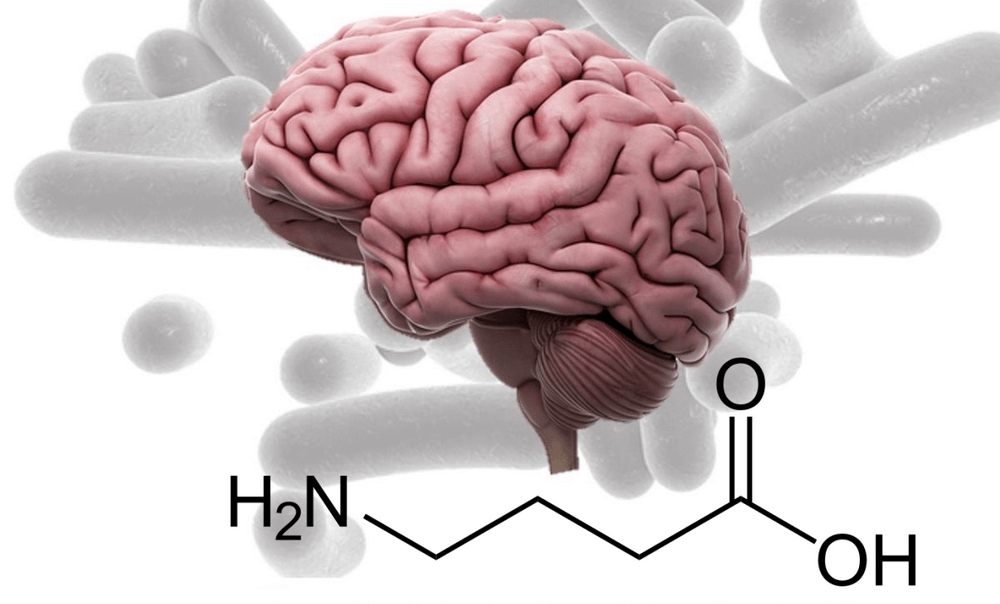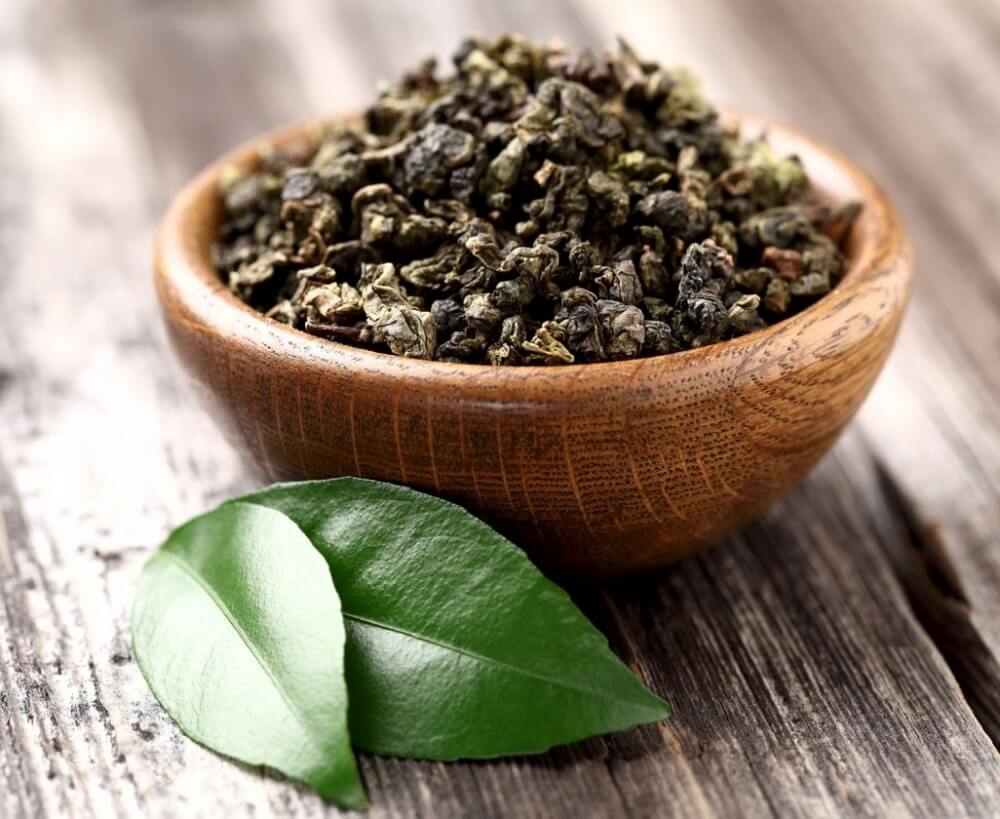Among natural remedies with anti-stress ability, gamma-aminobutyric acid preparations are becoming increasingly popular. They are able to eliminate anxiety and improve sleep, and are also in demand in sports practice to enhance the growth of muscle mass. We will learn about the benefits of this substance for the body and how it can be used in everyday life.
What is Gamma-Aminobutyric Acid (GABA)
Contents
- 1 What is Gamma-Aminobutyric Acid (GABA)
- 2 A little history
- 3 How does GABA work?
- 4 How does GABA work?
- 5 What is the benefit of GABA?
- 6 What are the benefits of GABA?
- 7 GABA for athletes
- 8 Symptoms of gamma aminobutyric acid (GABA) deficiency
- 9 How to increase the level of Gaba?
- 10 What does gamma aminobutyric acid contain?
Gamma-aminobutyric acid (chemical formula C4H9NO2) or GABA is an organic substance that is synthesized by the body and is present in all areas of the brain. It is the main inhibitory neurotransmitter in the central nervous system, that is, it slows down the transmission of nerve impulses, and competes with glutamate – the main excitatory mediator, affecting about 30-40% of synaptic connections. In nature, this substance is present in some plants, such as valerian or green tea.
Neurotransmitters affect our thoughts, feelings, sensations. An imbalance between the main neurotransmitters (serotonin, dopamine, GABA and acetylcholine) can manifest itself in various psychological disorders.

The main task of GABA is to block unnecessary information flows to create parity between the processes of arousal and inhibition in our brain, providing functions such as attention, motor and emotional control.
Gamma-aminobutyric acid receptors in high concentrations are found in the cerebellum, thalamus and spinal cord. Moreover, recent studies have shown that GABA molecules are also present in the walls of the uterus, spermatozoa, retina, lungs and respiratory tract, as well as in insulin-producing beta cells of the pancreas.
A little history
The presence of GABA in the brain became known in 1950, when an American scientist Eugene Roberts, while studying free amino acids, came across a compound whose migration on paper chromatograms did not correspond to any compound containing known amino acids. He drew attention to the presence of this substance in various tissues of the central nervous system: the brain, cerebellum and spinal cord of vertebrates and suggested a direct or indirect connection with the conduction of nerve signals. 7 years later, researchers from Canada reported that the same unknown compound with inhibitory activity against neurons was GABA. A number of subsequent discoveries have determined its role in our brain.
How does GABA work?
GABA is an amino acid that occurs as a result of processes occurring in different cells and, above all, in nerve cells. The “chemistry” of the brain is such that the main brake for the mediator – gamma-aminobutyric acid is the product of the main excitatory neurotransmitter – glutamate, which produces it under the action of the enzyme glutamate decarboxylase (GAD), and vitamin B6 acts as a cofactor. All this happens in a part of the brain called the “hippocampus”. Maintaining a balance between these two neurotransmitters is a key condition for physical and mental health, as well as good mood. Low GABA levels lead to the development of anxiety, depression, impairs concentration, attention and some cognitive functions.
To understand the role of GABA, it is important to know how it interacts with its receptor. When Gamma-aminobutyric acid binds to the GABA receptor, the latter slightly changes shape, allowing ions to pass through its central channel. This leads to a decrease in the excitability of the neuron, which is why GABA is called an inhibitory neurotransmitter.
How does GABA work?
Getting into the brain from food, supplements or medications, GABA becomes not just an additional inhibitory mediator, but also food for neurons, as it is captured by mitochondria. In neurons, it performs two tasks: about 1% of the substance works as a neurotransmitter, and 99% provides energy exchange in mitochondria during ATP synthesis and glucose breakdown. This substance stimulates metabolism, saturates the brain with oxygen and improves blood circulation throughout the body.
What is the benefit of GABA?
The main function of gamma-aminobutyric acid is to reduce the nervous activity of the neurons to which it attaches. It prevents prolonged activation of neurons, and also performs a neurotrophic role, promoting the growth of certain neurons.
The main functions of GABA:
- regulation of motor activity
- provision of memory and thinking
- processes anticonvulsant effect
- blood supply to the brain
- activation of energy processes
- increased respiratory activity
- acceleration of glucose utilization
- withdrawal of toxic metabolic products.
The inhibitory effects of GABA serve to counteract the excitatory (activator) effects of glutamate. Indeed, when the brain is too excited, it can contribute to feelings of anxiety, irritability and even insomnia. Taking GABA helps to correct the imbalance associated with anxiety states, has a relaxing and sedative effect. It is also associated with a better quality of sleep, allows you to switch off, contributing to a quick fall asleep.
GABA plays a stabilizing role on the mental and physical level, helps to restore balance and maintain a normal mood. This substance is involved in certain stages of memorization and can be used to relax, manage fear or anxiety, which manifest themselves in overexcitation.
It has been scientifically proven that GABA significantly stimulates the secretion of growth hormone (HGH = Human Growth Hormone) in the early stages of deep sleep. Growth hormone is one of the muscle growth hormones in the human body. It helps reduce body fat and stimulates muscle growth. GABA acts on certain chains of neurons that stimulate the hypothalamus, so that more growth hormones are released. This ability is highly appreciated by athletes.
On the basis of GABA, nootropics are produced – drugs that improve the higher functions of the human brain. They are widely used in the treatment of strokes, brain injuries, age-related changes, when the working capacity of the brain is significantly reduced. The advantages of nootropics over other drugs that affect synaptic activity are that they do not cause addiction and dependence, unlike psychomotor stimulants and neuroleptics. And, since GABA is an inhibitory neurotransmitter, it is widely used in the treatment of epilepsy.
Thus, tableted gamma-aminobutyric acid contributes to the overall strengthening of the nervous system, in particular, brain functions such as thinking, perception and attention.
GABA receptors are also located in the hypothalamus, which controls circadian rhythms and is directly related to sleep. Many insomnia medications, as well as their herbal analogues, raise the level of GABA, thereby improving the quality of sleep.
What are the benefits of GABA?
Thanks to numerous studies, GABA is now officially recognized as an effective cytoprotective antihypoxant and antioxidant for various organs and systems. It is credited with antitumor and anti-inflammatory properties, as well as the ability to positively influence the work of the immune system.
The effect of GABA on sleep is especially noticeable. Under its influence, mental arousal decreases, the energy processes of the brain are activated, the respiratory activity of tissues and glucose utilization improves, which leads to high-quality deep sleep.
The effect of GABA on the body:
- promotes calming and relaxation
- controls “panic” states associated with anxiety
- reduces muscle tone
- reduces seizures in epilepsy
- eliminates muscle spasms
- reduces heart rate
- normalizes blood pressure
- helps control anxiety
- promotes quality sleep
- reduces blood sugar
- increases overall immunity
- accelerates the recovery process after trauma
- improves sexual activity
With the help of GABA drugs, mental retardation, cerebral palsy, post-stroke conditions are treated, and brain functions are restored after injuries. Taking supplements with GABA is advisable with high mental, physical and psychological stress. They help to normalize the brain, cope with stress.
GABA for athletes
The benefits of GABA supplements for athletes

Today, many professional athletes recognize the benefits of gamma-aminobutyric acid for athletic achievements. The advantage of a sportpit based on it is high efficiency in the absence of a hormonal component. By acting on the anterior lobe of the pituitary gland of the brain, GABA stimulates the production of growth hormone, thereby increasing the growth of muscle tissue and reducing the percentage of fat throughout the body. This is especially important for bodybuilders and athletes.
Benefits of GABA for athletes:
- increases the content of growth hormone by 4-6 times, being a safe alternative to steroids
- stimulates the production of somatotropin even after exercise
- participates in the fat burning process, contributing to faster drying
- helps to achieve a beautiful relief body faster
- normalizes the nervous system
- eliminates insomnia, improves sleep
- accelerates recovery after injuries: sprains and sprains.
GABA supplements are consistently in high demand among professional athletes and amateurs, which is the best confirmation of their high effectiveness. Isolated negative reviews are associated with improper use of drugs with GABa or violation of the training process.
It is important to remember that all dietary and sports supplements are taken in a certain dosage, in courses, after consultation with a doctor.
Here are some of the symptoms indicative of GABA deficiency:
✔ nervousness and inability to concentrate
✔ intermittent tremor
✔ frequent breathing difficulties
✔ heavy sweating
✔ fatigue even after a good night’s sleep
✔ mood swings
✔ confusion in thoughts
The most severe case, which is associated with a lack of γ-aminobutyric acid, is epilepsy. This neurological disease is caused by the fact that as a result of malformations or brain tumors, a huge wave of excitement occurs periodically in some area of the brain (most often in the local area), which leads to an epileptic seizure. Using drugs containing GABA, it is possible to enhance the work of the GABA system by suppressing the activity of the excitatory neurotransmitter.
Cases of deficiency in which GABA intake is recommended:
✔ problems falling asleep due to nervousness and anxiety
✔ inability to relax
✔ constant feeling of physical tension
✔ mood and behavior disorder due to stress
How to increase the leHow to increase the level of Gaba?
h a balanced diet and a proper lifestyle, the production of gamma-aminobutyric acid is regulated independently, but bad habits, stress and some diseases can provoke its deficiency. GABA is naturally present in plants, but, above all, it is synthesized by our body endogenously from glutamic acid.
To restore the GABA balance in the body will help the consumption of food or special supplements containing gamma-aminobutyric acid, as well as glutamine, since GABA is its derivative. This substance is found in animal proteins: eggs, white meat, legumes such as lentils or chickpeas, leafy vegetables – spinach and parsley. And to turn it into GABA, it is important to take supplements with vitamin B6 and magnesium.
Some plant extracts can also affect the production of GABA. For example, melissa is a transaminase inhibitor, and its consumption increases the level of GABA in the brain, since it will decompose less. GABA stimulants include: inositol, glutamic acid, melatonin (at night), thiamine (vitamin B1), niacinamide (vitamin B3), pyridoxine, valerian, passionflower 200-1000 mg.
What does gamma aminobWhat does gamma aminobutyric acid contain?
ABA is found in products such as chestnuts, potatoes, rice, astragalus, fresh leaves of individual teas, from which natural extracts of GABA are obtained.
In addition, it is part of medications and supplements designed to eliminate anxiety, anxiety, lower blood pressure and improve sleep, as well as in sports nutrition for athletes and bodybuilders.
Studies have shown that with prolonged intake of products and preparations with gamma-aminobutyric acid, it is possible to raise its level in the body to optimal.
